
A Foreign Language: Part Three By Catherine Lacey
The third installment of a short story by Catherine Lacey.
Winter 2024 Issue
We present the final installment of a four-part short story by Arinze Ifeakandu.
They were burning ants behind Block B. It was Saturday morning, cleaning day. The ants had appeared in the muddy, littered patch of grass before inspection, an eyesore, black ants with painful stings, big-headed soldiers flanking workers in a gushing column. I itched all over staring at them. We had been washing our clothes behind Waddington House, Samson and I, when Nko rushed out to tell us about them. Ant columns were regular occurrences here, they appeared in wet and dry places, strings marching across our hostel floor or up the shwa-chop tree in front of our classroom. Once, two columns had appeared as parallel lines in front of Waddington House—one red, the other black—and we had made a game of breaking their once peaceful lines, poking them until they broke ranks, scattering in all directions.
Today they were behind Block B, the densest, longest column I’d ever seen, stretching all the way to the Waddington House bathrooms. A week had passed since Soludo’s disappearance and nothing was normal here. Our entire school shivered with speculations about his whereabouts, especially with exams and interhouse sports looming. He was our hostel’s star boy, a fabulous sprinter with ostrich legs and a cheetah’s sprint, he’d snatched gold and silver the previous year, before our arrival at Marian Boys’, for being best at high and long jumps as well as the 100- and 300-meter races. It was somehow understood that despite committing the expellable offense of running away from school, he would not be expelled, that Sir Obinweke would read out his offenses during morning assembly, sounding his verdict like a high-court judge, squinting grimly behind the lectern as he declared: You are hereby sentenced to twelve strokes of the cane and one month’s suspension!
We knew nothing for sure, of course, we were JSS 1 boys, and our intel was as good as the speculation of our seniors who spoke of the matter with as much secrecy as the flaunting of their rage, disciplinary oaths spilling out of teenage lips, though we did not see them that way back then, as simply teenagers. They felt pretty grown to us, and those “big boys” were going to deal with our friend whether the school chose to or not. Apparently, Soludo had grown wings. Envious of his notoriety, his seeming untouchableness, they schemed in the corridors and the senior corners and we eavesdropped from the safety of our corners, pretending to be occupied. The general feeling was that they did not want him expelled, they genuinely hoped that he was safe out there (crazy things happened all the time to children who ran away, such as accidents, kidnappings, and ritual killings), they only wanted him knocked down a peg or two, wanted to see him cry, like a little girl, in front of the whole school.
I had minor panic attacks that week, especially at lights-out, when, for some inexplicable reason, it would appear crystal clear to me that Soludo had fallen into evil hands. We had seen ghosts and deities and had heard the ethereal moaning of unknown spirits—the world was no longer new to us.
Meanwhile, it was Saturday morning and the boys were burning ants. OBJ was in charge of operations, standing there in his untucked day blues, shouting suggestions like a commander-in-chief. We were to get flammable things, scorch the ants to death. Some boys gathered nylon bags from surrounding refuse, while others, following OBJ’s lead, found broken jerry cans whose fires dripped in clumps of sea green onto the ants’ rank and file. They screamed hysterically in my head, scattering all around. We had taken posts at various points, flaming them at every junction; boys in blue holding brooms and cutlasses and fiery trash, ready for labor.
We followed Nko, Samson and I, taking our place at the belly of the file. Nko looked around, grabbing a carton and tearing it. He lit it on another boy’s fire and, squatting, flamed the ants. “Plastic is better,” said the boy.
I watched as the carton burned, yellow flames, loud and quick. The smell of smoke. Plastic bags curled and dripped, giving a churning odor. Gallons and jerry cans were the most beautiful, the liquid smell of their burning, their ordinary fire and its dripping detonation, bluish green, like viscous bombs falling. There was fire on patches of grass, a result of the jerry cans whose flame lingered. I began to look around for something plastic—bread sachets were wet, some covered in caked toothpaste, disgusting, so I picked a carton instead.
“The soldiers are rushing around,” I said, squatting to join the game. “They are wondering who these giant attackers are.”
“It’s a war zone they don’t understand,” OBJ supported.
“An enemy they don’t know!” thrilled a boy standing to my left.
“Be careful,” Nko said, standing up and beating his legs. “They bite.”
I jumped up. There was a crawling sensation on my feet, up my legs. My carton was all burned out and I looked around for more. I was a picture of excitement.
“We have to focus on the head of their line!” OBJ bellowed, like a commander of boys. I imagined that we were soldiers.
“I’m going back to our clothes,” Samson said, “before someone steals them because we’re here killing ants.”
“Nobody will steal them,” Nko said. “You’re just afraid of ants.”
“No, I’m not. It’s just foolish killing them, what did they ever do to you?”
“They’re trespassing,” Nko said.
Samson was unfazed. “It’s not like they would stay here forever. Fire or no fire, they will still return to where they came from.”
He turned around, walking toward Waddington House. Nko was somewhat right: it was their house’s duty to sweep that portion and the ants were in their way. I was holding another carton now, contemplating my next moves, when I felt the sting in my thigh. A small cry escaped my lips. I stomped my feet, scratching.
Nko beat my hand. “Don’t scratch! You’ll only make it worse. Did you see the ant that bit you?”
I knew what he was driving at. Once, a soldier ant had stung me while sleeping over at Grandma’s house, and my cousin Elo, who was from the village and wise about these things, had told me that the antidote was that very ant’s fluids. I’d been skeptical but he did his face like “This boy isn’t ready,” and, sniffling, I’d shone a torch on the floor, squashing the first ant I saw with my pointing finger. It barely had liquid and it did nothing for me, the little it had. “Maybe it was not the one that bit you,” said Elo, “let’s keep looking.” In the end, Grandma had rubbed red oil on the spot and told me to sleep. The pain would be gone before I knew it, she said.
I missed my grandma.
I left Nko there, returning to Samson. It hurt like hell, the sting, and I was trying not to cry. There would be nobody to tell me sorry, especially now that Soludo was gone. I missed Soludo. It was a week since his disappearance and no one, not even his mother, knew where he was. Our teachers had interviewed us a gazillion times, threatened us, even punished his corner mate, Bobby, and, still, nothing.
It is the year 1964, two years before the pogrom, the genocide, the war. The place is Kano and the sun is scalding. You are a colonel freshly returned from Sandhurst and he is from a town near Dutse, the man who is not the bond your spirit seeks but whose eyes charm yours and whose fidelity will save your life. (In 1966, he warns you about the killings the night before they begin.) He is a cobbler during the day and a charm-maker’s apprentice at dusk, and he feels your roving, timeless search at first glance. His spirit calls out to yours and you walk up to him, ignoring the other cobblers and handymen beckoning you. Your mortal self has no inclination of your timeless search; in this life you are a practical man, a soldier who loves novels and disco, denouncing all religions and superstitions. Attuned to spiritual things, he smells your soul’s longing, the cobbler man who wears the sun and the heat like second skin. He, too, has a timeless story that you will learn. His black is a sun-kissed black, shining with the perspiration of his labor. He shrugs matter-of-factly when you ask how he does it, sit under the hot sun all day mending shoes. A chameleon skittles past his feet and he swears at it in Fulfulde, raising your shoe as though to smash its fleeing shadow. His name is Fahad.
Nko’s sleepwalking began that night, after they burned the ants. I believed it was karma, his somnambulation (I’d seen ants during my daytime naps, which had become more frequent since I first encountered the angel and the freaky man cow, it was always daytime by the brook where the man cow rested, like a watchman after a long night). Nko blamed Osita squarely for it, meanwhile Ifeanyi believed it all connected, a string of events that had begun long before Collins’s death. He came to that conclusion because of his dreams, which had begun after Freedom Week, on our second week at Marian Boys’. Nko’s visions had begun then too; only my encounter that rainy night was new.
It was the end of night prep and Nko was putting away his books. Osita stood beside him, trying to get his attention. “Did you not hear me?” he said, tapping Nko’s shoulder.
I was waiting to walk Nko to chapel for choir practice, Ifeanyi having left earlier on to use the bathroom. I was somewhat scared of walking alone, especially after everything that had happened lately. It was dark outside our classrooms, the night vaguely illuminated, the power having gone out during night prep so that we lit our classrooms with rechargeable lamps, though the corridors remained lively with the voices of students, boys putting away their books or lingering with friends, dashing in and out of classrooms, swearing and laughing and yelling for their friends.
“They keep shouting people’s names at night,” Nko murmured. “They will not learn until an evil spirit hears it and hurts someone’s child.”
“What will the evil spirit do?” Osita said, looking down at him, mischief in his eyes.
“I don’t know. Maybe we should try with your name.”
“You know your problem, Nkorita?” Osita said. “You’re just too proud for no reason at all.” Osita made to snatch Nko’s choir notebook from the table, but Nko grabbed it fast, glaring at Osita, who would have immediately fled into the corridor had he gotten the book first, tricking Nko into a game of chase. Osita glared right back, as if he wasn’t the troublemaker in that situation. He clicked his finger, a devious idea lighting his head, and rushed to the window with the missing louvers. He stuck his head out and began to yell: “Nko! Nkorita!!” Nko rushed at him, standing on his tippy toes to shut Osita’s mouth, but Osita was hiding his head, laughing and hiding his head, and sounding very pleased with himself. He sputtered into Nko’s hand: “Nkorita!!” Turning around, his face was a sunshine of grins, Nko beside himself with rage.
“I na-achoka okwu!” he bellowed, stomping out of the classroom.
That night, Ifeanyi had the strangest dream, and Nko’s sleepwalking began.
I soared in the dream like a migratory bird, gliding like a crane through the kaleidoscopic portals of time and space. It must have been the 1600s, clumps of huts among the clustering thickets, shrines, and groves, no steeples yet.
Your name is “Omankalu” in this dream, your title “Ide Ji Obodo.” You were here before the bonding, before this millennium when you are Omankalu blood bound to Nwachukwu.
It was a long dream, and now the song that lulled me, pulling me into the waters of past memories, was like the receding flow of a stream. I saw her face for the first time, the girl in the toilets of Block B, dirty stalls appearing in a little corner of my dream’s mural—I saw her shadow, a smallish teenager with pointy hair, the village beneath her frame, your village, Ide-Nri. Soon I was levitating, sailing above the memory of those past lives and falling freely into the life plot of once-forgotten memories.
The year of your bonding, Nwachukwu was an apprentice, a farmer in his father’s lands during the day (as were you all) and a town crier’s assistant at night. He liked to play his oja in moonlight, outside his mother’s hut, for his umunne na umunna. Between tunes, he told the sweetest stories about the world of all things: trees and flowers, insects, animals of the stead and the forests, humans and the great big sky. He sat on an upturned mortar, loincloth bunched between his legs, slightly elevated from his audience, who sat in cozy curls on their mats. His skin was the color of mud and he had seven dark scars on his bare chest, tiny incisions tallying the number of his returns. He was an ogbanje, a spirit child born to die before puberty, a journey he’d begun as three consecutive stillbirths. The year of your bonding, he was ten-moons-and-five, and it was the year 1662 by today’s standards.
But you first met him, at the stream seven moons before, when he was eight-moons-here and you nine. He was in his precarious years. His parents had begun the rituals after his third return, marking him, yet every seventh or eighth moon he’d returned to the land of the Unborn, breaking his mother’s heart. People said he’d been a wicked child who rebuffed her prayers, her attention, but as the years went by you came to see that he’d, simply, always been too precious for this world. He was a beautiful child, full of witty quips that sometimes got him fleeing from the older boys, slippery as fish; and when he laughed, his little head fell back, and between his lips rang the purest sound. The moment you laid eyes on him, your spirit saw his spirit, and you left your clan, swimming to him as he played in the water with his. You stood uncertainly in the shallow end, tentatively wading toward their circle. They were waist-and-elbow-deep in the stream (he was slightly above elbow-deep), six children splashing water at each other. The currents were strong that morning, pulling your legs, the sand below treacherously soft. Arms stroking the surface, keeping you afloat, you waited to be noticed, but they continued to play, laughing, oblivious; and he continued to duck from their splashes, going under. The clustering trees formed a shadow around their bed as they moved deeper with the currents. The stream swallowed him shoulders deep. You noticed the sky above the trees, and the unseeing, unhearing splatter of activity all around: women soaking cassava on the other shallow end where no one was allowed to wash or play; children playing with their friends, filling their water pots, beating wet laundry against the rocks on shore. He was chin deep when you looked again, hands flailing as the currents snatched him off his feet, carrying him toward the dark mouth of the grove. There were stories of children who had gone that way, taken by the spirits of the stream, their bodies found many towns over, or never again. He kicked and flailed, kicked and flailed, his cousin, Osadebay, swimming desperately after him. The set of actions came to you in a flash: there you were on shore, running toward the grove, faster than current. The forest and the creeks were your friend, and eight-moons-here, you were already a marvel under water. Still, it was precarious, the currents by the grove could drag you away with him. And yet. The trees, their branches twisting toward the water. You grabbed a fat, solid branch while the currents fought you; submerged from the neck down, there was nothing beneath your feet, not soft wet earth, only living water. You grabbed his flailing arm, which was all that remained of his body—the stream having accepted its gift with glee, taking him under and beyond—and held him there until his cousin, six moons older and more experienced with the currents, grabbed him ashore. That evening, his mother came to your mother’s hut to show her appreciation, and while both women got acquainted, trading stories, you asked if he would like to play, and together you scuttled off into the compound.
In the moons that followed before his fifteenth, you showed him the ways of the forests—how to lay traps for big and small game; how to lie in wait, silent as the trees, for the kill; how to shoot an arrow with great precision; how to give an animal a clean death—and he opened your eyes to beauty all around. All the while he bestrode this realm and that of the Unborn, with seasonal fevers that threatened his life, so that he burned and sweated days on end in his mother’s hut. She let you sit with him, let you administer the dibia’s remedies, and year after year he said no, said here was the place for him, and his mother looked at you one day, something grateful in her eyes, as she said, “Perhaps all he ever wanted was a brother like you to make him stay.” By his fifteenth moon, it was concluded that he was here for sure, and his father threw a party for him. There was much drumming and dancing, men and maidens flirting in the dark corners around the compound, akpu na onugbu overflowing from his mothers’ kitchens, palm wine from his father’s stead. You see it now, the full moon that night and the vivacious drumming in that corner of the village. You see him and you see you, wandering away from the party. The paths are dark, lit occasionally by the fires of a compound.
“Where are we going?” you ask.
“To the stream,” he says.
No one went to the stream after dusk, when the spirits came out to play, and you wondered, fleetingly, if he was taking you to meet his spirit friends. You stopped in your tracks. His face in the moonlight was gentle, with an otherworldly beauty, and for the first time in your years of friendship, you felt a bone-chilling fear of him, the boy who was not of this world. The surrounding darkness crowded with presence and meaning, and in the soft whites of his gentle eyes was a quiet knowing. He saw your fear and he saw your love.
“Are you afraid of me?” he asked.
“No,” you said. Your voice faltered. “There is nothing to fear. It’s only you, Nwachukwu.” You looked frantically around: the immense darkness with its eerie night sounds, things lurking behind trees. “But I do not want to go to the stream. We should go back home. This is not the night we encounter a bad spirit. Not tonight.”
He walked toward the bushes, sitting on a fallen tree. He picked up a twig, doodling in the sand. The path went four ways, a crossroad: ahead was the stream and behind was the village. You sat beside him. “Who said it’s over?” he asked, eyes on the sand. “I could die tonight or a few moons from now.” He paused, crickets and toads accentuating the silence. “My mother. My mother.”
“You will not die. You have broken the cycle by living this long.”
He shrugged. “Everyone in my father’s compound has always treated me like an egg, as though afraid to offend the recalcitrant spirit child lest he chooses to go away, or, worse, incite his spirit friends against them.” He chuckled, a low, sad chuckle. “In all of this, it is my mother I think of. I am her only child.”
“I know.”
“Can you make me a promise?”
“Anything.”
“Will you always check in on my mother should I go with the coming moons?”
“You are not going anywhere.”
“Omankalu! Please just listen. Do you promise?”
“I promise—aren’t you my brother? But I tell you this, nothing will happen to you.”
He continued to doodle in the sand. Fireflies glowed in the dark. His scribbles were almost imperceptible, but you could see, under aqueous moonlight, the shape of an ant. You took the stick from him, thinking of the beast you had once seen during an expedition with your father and his company one moon ago. He’d gone in search of tusks, a hunting accomplishment worthy of a title if successful, venturing into forests you had never dreamed of, crossing many streams and old, abandoned villages. You were too young for the journey and the dangerous hunt, still you went, watching as your father marked their tracks, saying, “They are near, maybe seven or eight of them—we will have to isolate the matriarch.” The sound the beast made when you finally found her in the snare, in a tangle of ropes, you’d never heard anything like it before; and the way she fought the hunters, who pulled on the ropes against which she struggled as they came at her with their spears. She maimed a hunter with her massive tusk and shook the ground with her stomping. Her cries were furious and plaintive, and your father said, “Hurry before her companions arrive!” You hid behind a tree as Father had instructed, overcome by a wondrous trembling. When the elephant fell, you felt no triumph, only deep respect and a sense of the glory of all things. Her tusks sat above your father’s stead in his obi, and whenever you looked at them, you saw the dying light in her eyes, and felt a rush of love and pity.
You drew her now, doodling in the sand. “Enyi,” he said, which, depending on the accent, meant “elephant” or “friend.” You nodded. You retrieved your little knife from the side of your loincloth, unsheathing it.
“I will make you a promise today, in blood,” you said. “That no matter what happens today or many moons from now, I will find you in every lifetime and be your brother.”
He looked up at you, taking the knife from you. He slit his palm. “Brothers, in this life and the next,” he said.
You clasped hands, blood to blood, spirit to spirit, and, unclasping, drew each other into an endless hug.
I woke up with a jolt. Samson was standing by my bed. “I know where Soludo is,” I said. It was way past lights-out, sometime around one in the morning, the hour—between one and three—when witches were said to be most active.
“The man came to my window again,” he said, wide-eyed. “I think Nko is in trouble.”
“What man?” I whispered, panicking. The lights were out and everyone was asleep.
“The man with the horns. He told me to check on the boy ‘whose eyes had seen the dead.’ That’s Nko.”
Samson’s voice was cool, strangely normal, as though he were talking about regular stuff. I did not register then the oddness of his composure, still stunned by the vivid intensity of my dream. Somewhere in the kaleidoscopes of my shifting dreamworld, I’d found myself on a street in Onitsha, a city I’d only ever passed through, the bus to or from Kano stopping there to pick up or drop off passengers, spilling us for a moment into the smelly, oily disorder of some motor park. I’d seen the roofs as our bus drove by, endless clusters, blue, brown, and red; tall, tall flats and decrepit compounds on whose falling balconies shirtless men brushed their teeth. Onitsha was loud and crowded, but the street was quiet this morning, darkly gray. Old Peugeots and Mitsubishis parked in front of one-story buildings. A foraging dog suddenly pausing by the electric pole to bark at the roof. The street brimmed with the strangeness of its unfamiliar energies, and—to God Who Made Me—I felt the presence of other spirits, rising as surging ruptures at the dog’s alarm. This was their turf, their home, their marketplace—who goes there! My friend asleep in the compound across the street, shaking from a nightmare. I needed to identify the street and knew I must perch on one of the cars for a clearer view of the numbers drawn in black or blue on the compound walls. But they were down there, the owners and runners, stalking behind the cars and electric poles. The dog continued to bark, inconsolably mad. I reminded myself that this was my dream and they could not hurt me. Yet this dream felt different—perhaps with the new knowledge from recent uncanny occurrences at Marian Boys’, it felt like real life. Still, the knowledge that I was the boy asleep on his bunkbed, and not the bird perching on a dusty Audi, the sense that none of this was real—it assured me greatly. Shortly after, I woke up.
“Quick, come,” Samson was saying.
Slowly, memories of our fight returned to me. “No,” I said.
“Why?”
“I’m not going out there.”
Samson’s face curled, and something about his angry face filled me with pity. It was the sense that he might weep. “Please,” he said. “Nko needs our help and I can’t go alone.”
I sat up properly, lifted my mattress and retrieved my slippers. “What about the cow man? I’m scared.”
My top-bunk mate stirred, letting out a frustrated groan, like a warning, and turned his back to us, continuing his sleep. “Please lower your voice,” Samson said, soft and clear. He seemed resigned to the task at hand. “That’s why we’re going together. If anything catches either of us, the other person must run into the nearest hostel and make a loud noise. Wake everybody up.”
We were at the door now, plotting our moves. Fear pumped my heart, rapid-rapid, panic in my veins. I could not believe I’d been picked for such a task; outside, night loomed with every possible danger. The air was nippy with the breath of dead and living things. I shivered, looking up at Samson.
“We’re going now, but you have to strengthen your mind before we do.”
I took a deep breath, closing my eyes. “Let’s go.”
How did I come to be here, in Samson’s arms, Ifeanyi kneeling by my head? I’d heard my name in my sleep. Nko. Nko. Nko. Like the syncopated thumping of three pestles rising and falling on beat: N-ko. N-ko. N-ko. I remembered nothing else, only my rising moment and their voices calling my name, luring me to the reservoir.
What would they have had me do? Drown myself?
Samson was crying, tears rolling freely down his face. “Nko, o Nko,” he wept.
Once outside, we’d hit the corridor hard, dashing toward Block B. Past the island of light between our blocks and into the darkness of the corridors. We had to take the stairs two stories to Awka House, Nko’s hostel, and hesitated at the door, wary of the stairwell. We walked gingerly in; a weak beam grazed the wall, cast from the corridor of the topmost floor. We ascended, alternating between partial illumination and interminable darkness, grabbing the cold banisters as we went. Samson was in front. I gripped, then let his shirt go, casting cautious glances behind us. We took it two steps at a time. Samson accelerated, darting up the stairs, and I rushed behind him, fearing what lurked behind.
Nko was not in his corner when we got to Awka House, nor was he in any of the corners we peeked into, moving stealthily so as not to cause a stir. Samson went to OBJ’s corner, tapping him. “Have you seen Nko?”“No,” OBJ said, in sleep. We went outside, contemplating.
“Are you sure of what you saw?” I asked, feeling suddenly exhausted. “Maybe he’s in a senior’s corner.”
“If you don’t want to help me look, you can go back to bed,” Samson snapped.
I leaned against the veranda’s banister, staring down at the hedges, the football field, Classroom Block vaguely shrouded in the dark. That was when I saw him, first as a figure emerging from the staff quarters, my bones freezing with fright. And then he fully emerged, short, light-skin Nko wandering into the poor light of the twin streetlamps. I pointed: “There he is!”
“Where is he going this late?”
“Maybe he went to read.”
“Alone and at this time? I think he’s walking to Waddington House.”
Immediately, as if hearing our whispers from that distance, he dashed behind the hedges, sprinting into Chaplain’s front yard. “He’s running to the tank?” I said.
Samson turned swiftly to the stairwell door, which had been wedged open with a stone (the wind often made it bang at night), flying blindly down the stairs. I followed him, pausing for a wink on the second-floor landing. A shard of light splashed across a fragment of the gratified wall, the unilluminated words like lurking brigands behind a pale curtain. I stood there, forgetting my fear, my haste, mesmerized by the shadow on the wall, her voice cooing, kpakpangolo, kpangolo, Prosperity na e-kwu, kpangolo; and there, before my eyes, new words began to appear on the wall:
Your soulmate sings of motion—
Two right turns after the market,
one left turn into the rivered street:
the house.
Text © Arinze Ifeakandu, 2024
Read “Prosperity’s Long Song #1: At Lights-Out Hour,” “Prosperity’s Long Song #2: The Ripening,” and “Prosperity’s Long Song #3: Angels, Altars, and Atlas”

Arinze Ifeakandu is the author of God’s Children Are Little Broken Things, which received the 2023 Dylan Thomas Prize, the Story Prize Spotlight Award, and the 2022 Republic of Consciousness Prize, and was a finalist for the 2022 Lambda Literary Award for Gay Fiction, the Kirkus Prize, and the CLMP Firecracker Award for Fiction. Photo: Bec Stupak Diop

The third installment of a short story by Catherine Lacey.

The first installment of a short story by Catherine Lacey.

We present the third installment of a four-part short story by Arinze Ifeakandu.

Katherine Bucknell, previously the editor of a four-volume edition of Christopher Isherwood’s diaries, has now published Christopher Isherwood Inside Out, an intimate and rigorous biography of the celebrated writer and gay cultural icon. Here she meets with Josh Zajdman to discuss the challenges and revelations of the book.
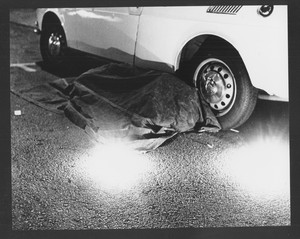
Sydney Stutterheim has published Artist, Audience, Accomplice: Ethics and Authorship in Art of the 1970s and 1980s (Duke University Press, 2024), a survey of performance art and related practices that involve, in various manners, the figure of the accomplice. To celebrate the publication, the Quarterly is publishing an excerpt that examines Chris Burden’s Deadman (1972).
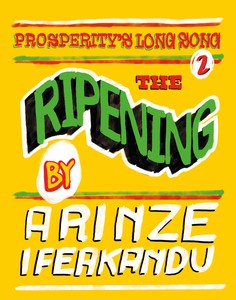
We present the second installment of a four-part short story by Arinze Ifeakandu.
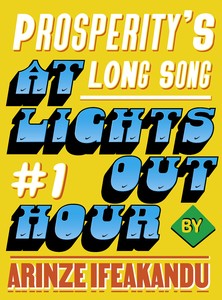
We present the first installment of a four-part short story by Arinze Ifeakandu. Set at the Marian Boys’ Boarding School in Nigeria, “Prosperity’s Long Song” explores the country’s political upheavals through the lens of ancient mythologies and the mystical power of poetry.
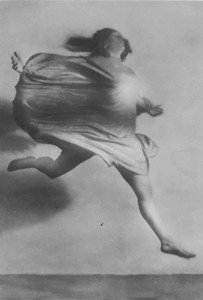
Salomé Gómez-Upegui interviews author Jennifer Higgie about her latest book The Other Side: A Journey into Women, Art and the Spirit World (2023).
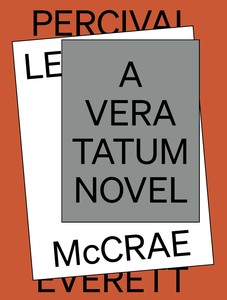
The final installment of a short story by Percival Everett.
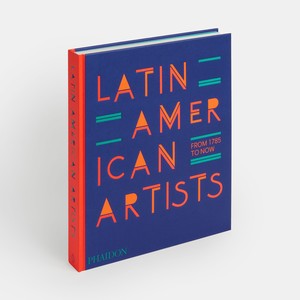
To celebrate the publication of Phaidon’s new, expansive survey, we share an excerpt from Raphael Fonseca’s introduction and a few of the more than three hundred artists featured.

The third installment of a short story by Percival Everett.
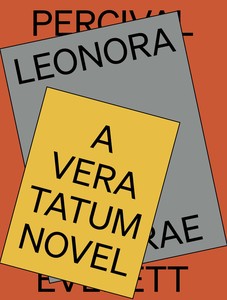
The second installment of a short story by Percival Everett.